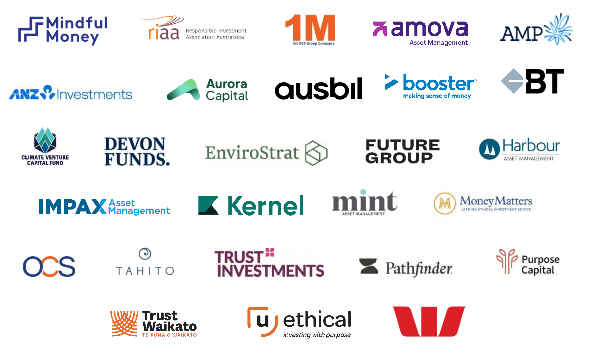The 28 signatories represent institutional investors and New Zealand businesses accounting for more than $215 billion.
Aotearoa New Zealand has built a strong international reputation as a green, sustainable, and ethically minded nation. With Modern Slavery Bills now proposed by both the National and Labour party (the Bills), we stand at a tipping point to introduce legislation aimed at driving transparent and ethical supply chains.
This is critical to protect vulnerable workers but also to maintain competitiveness and trust in our exports and brand.
Forced labour, human trafficking and other forms of modern slavery are exploitative practices that harm people and communities in Aotearoa New Zealand and worldwide.
Globally, a number of countries, including some of Aotearoa New Zealand’s key trade partners, have introduced laws requiring business to identify, address and report on modern slavery or broader human rights risks. However, Aotearoa New Zealand has failed to keep pace.
This leaves Kiwi consumers, businesses and investors exposed. For instance, in 2022:
• Aotearoa New Zealand imported $7.9 billion of risky goods associated with child and forced labour, accounting for 10% of the country’s total imports;
• This increase in risky goods matched the overall rise in total imports from 2019 to 2022 (10%); and
• Each week, a household in Aotearoa New Zealand spends about $77 on risky products potentially linked to forced labour.
Modern slavery legislation is a notable gap in our corporate regulatory landscape. Urgent action is required to address this concern, protect our reputation, and better manage the risks modern slavery creates for both people and businesses. As a business community, we welcome the changes envisaged by the Bills and recognise the current bipartisan appetite to improve corporate practices.
1) Aotearoa New Zealand is increasingly out of alignment with its international peers
Global regulatory focus on modern slavery has intensified in recent years. Key trading partners including the UK, Canada and Australia already have modern slavery laws in place while several others have adopted or are considering forced labour import bans.
Aotearoa New Zealand must align with these global standards and expectations to maintain market access.
Many of our local companies are already reporting under these laws, and many more are indirectly affected as suppliers to overseas entities. The Bills offer Aotearoa New Zealand an opportunity to align with these standards, safeguard and expand trade relationships, and ensure our businesses can compete in global markets with a credible domestic framework.
The New Zealand Government has identified the importance of global trade and investment for lifting economic growth and improving New Zealanders’ standard of living, and has established Invest NZ to facilitate Foreign Direct Investment. Failure to introduce appropriate modern slavery legislation carries significant risk. As our trading partners tighten their due diligence and enforce import bans on goods made with forced labour, Aotearoa New Zealand risks damaging international business relations and emerging as a soft entry point for risky goods.
2) Modern slavery erodes long term business value
Modern slavery is not only an ethical issue but also a material business and investment risk.
Companies connected to forced labour or exploitation face significant reputational harm, brand damage and increasing scrutiny from regulators and the courts. In a world of heightened global expectations, business models or earnings that rely on operations and supply chains characterised by underpaid or unsafe labour, weak oversight or illegal practices such as slavery will not be sustainable. Recent examples show the real costs of inaction.
As responsible businesses, we are committed to respecting human rights and mitigating risks in our operations and supply chains. Clear legislation also enables investors to assess and manage risk more effectively, strengthening business credibility and access to capital.
Appropriate legislation provides the clarity and consistency needed to support this work, creating a level playing field to ensure all businesses are required to meet these standards.
3) The Bills are an appropriately balanced next step for Aotearoa New Zealand
Effective management of modern slavery and associated exploitative labour practices requires commitment from both the public and private sectors. The Bills provide a comprehensive, balanced and pragmatic approach, strengthening Aotearoa New Zealand’s legislative framework to ensure the robust response these issues require whilst providing compatibility with existing regimes.
It allows local companies to meet international expectations while remaining relevant to our domestic context.
The Bills both require businesses to report annually on modern slavery risks, and will provide a consistent standard, reduce compliance uncertainty, and protect companies committed to ethical practices from being undercut.
The 28 signatories represent a strong cross section of the private sector, support a legislative response to modern slavery. They urge political collaboration to ensure passage of new laws without undue delay, and look forward to supporting the progression and implementation of this regime.
This is a slightly edited press release from the 28 signatories.




Comments
No comments yet.
Sign In to add your comment